
During the summer, the lotus ponds are a mesmerizing sight with their shimmering emerald waves, attracting numerous tourists to visit Yaoxi village, Yiqian township, Guangchang county, east China's Jiangxi Province.
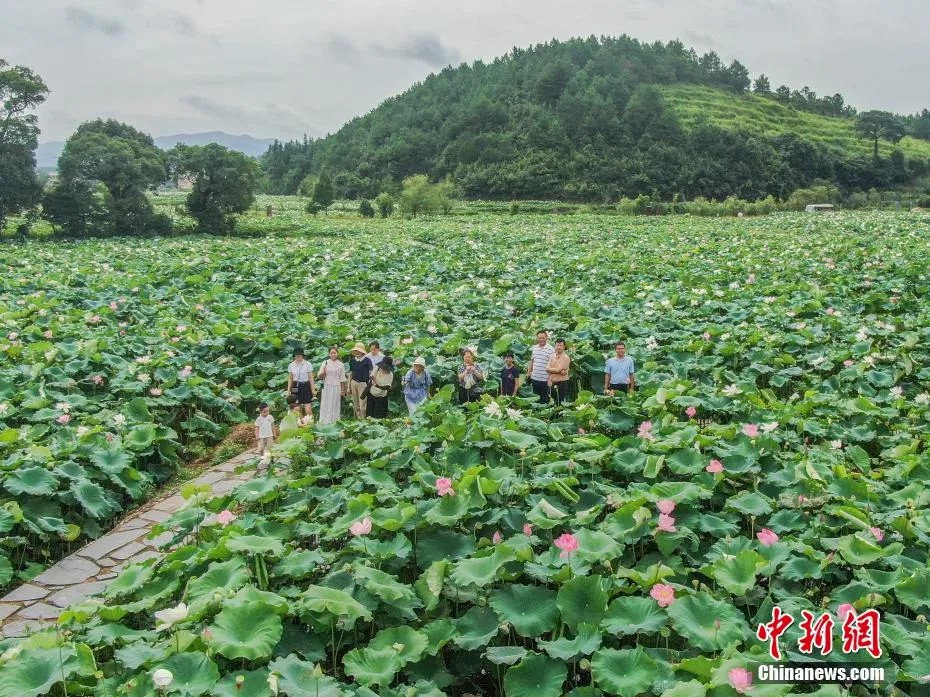 Aerial picture shows tourists going sightseeing at a lotus pond in Guangchang county, east China's Jiangxi Province. (Photo/Liu Lixin)
Aerial picture shows tourists going sightseeing at a lotus pond in Guangchang county, east China's Jiangxi Province. (Photo/Liu Lixin)
The area of land dedicated to white lotus cultivation in Guangchang, renowned as the “hometown of the white lotus” remains stable at around 110,000 mu (about 7,333 hectares), contributing to an annual comprehensive output value of over 3.6 billion yuan (about $495 million).
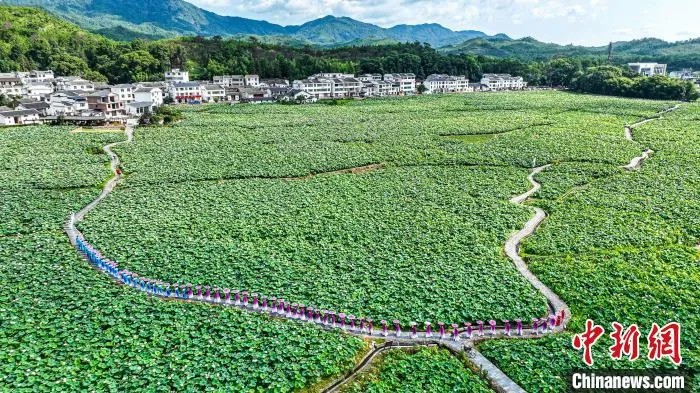 Photo shows a lotus flower scenic area in Yaoxi village, Yiqian township, Guangchang county, east China's Jiangxi Province. (Photo/Cheng Mengling)
Photo shows a lotus flower scenic area in Yaoxi village, Yiqian township, Guangchang county, east China's Jiangxi Province. (Photo/Cheng Mengling)
 Photo shows a blooming lotus flower at a lotus pond in Guangchang county, east China's Jiangxi Province. (Photo/Chen Jiale)
Photo shows a blooming lotus flower at a lotus pond in Guangchang county, east China's Jiangxi Province. (Photo/Chen Jiale)
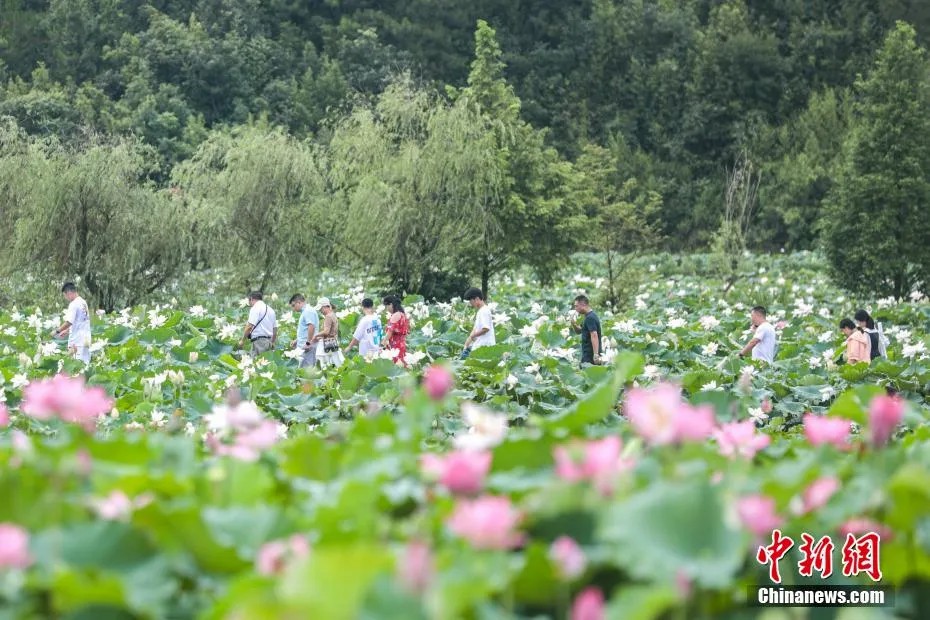 Tourists go sightseeing at a lotus pond in Guangchang county, east China's Jiangxi Province. (Photo/Liu Lixin)
Tourists go sightseeing at a lotus pond in Guangchang county, east China's Jiangxi Province. (Photo/Liu Lixin)
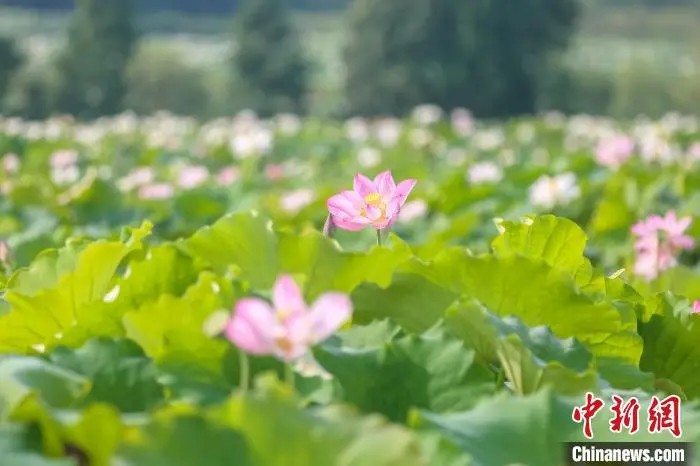 Photo shows blooming lotus flowers at a lotus pond in Guangchang county, east China's Jiangxi Province. (Photo/Liu Lixin)
Photo shows blooming lotus flowers at a lotus pond in Guangchang county, east China's Jiangxi Province. (Photo/Liu Lixin)
Lotus cultivation has a history of over 1,300 years in Guangchang, with Yaoxi village being a major white lotus production area in the county.
The white lotus seeds produced in Guangchang are known for their white color, large size, sweet taste, refreshing fragrance, rich nutrition, and extensive medicinal uses.
In 1984, a white lotus research institute, the first of this kind, was established in Guangchang.
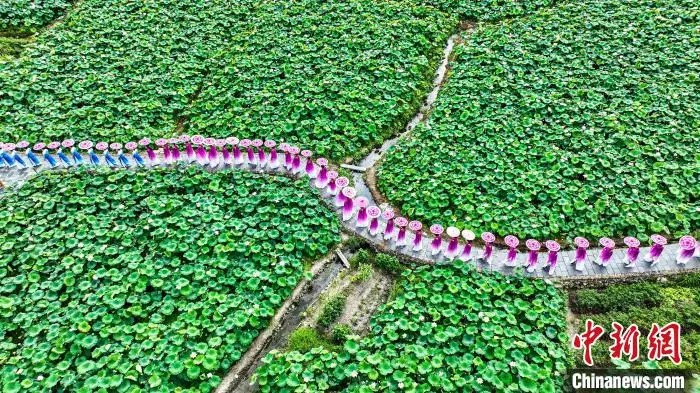 Qipao dress enthusiasts go sightseeing at a lotus pond in Yaoxi village, Guangchang county, east China's Jiangxi Province. (Photo/Cheng Mengling)
Qipao dress enthusiasts go sightseeing at a lotus pond in Yaoxi village, Guangchang county, east China's Jiangxi Province. (Photo/Cheng Mengling)
Since the 1990s, Guangchang has been leveraging the lotus research institute to conduct space breeding research for the white lotus.
By sending white lotus seeds into space, and then cultivating them upon their return to Earth, the county has developed space-bred white lotus varieties known for their high yield, superior quality, and extended flowering period.
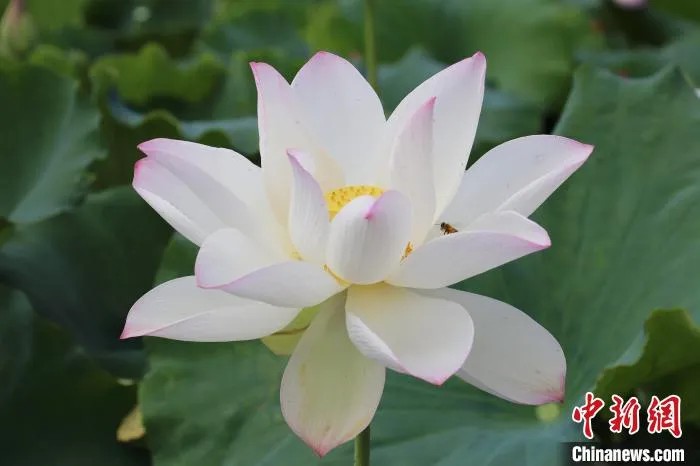 Photo shows a blooming lotus flower at a lotus pond in Guangchang county, east China's Jiangxi Province. (Photo/Xiong Jinyang)
Photo shows a blooming lotus flower at a lotus pond in Guangchang county, east China's Jiangxi Province. (Photo/Xiong Jinyang)
One standout variety from this research is the No. 36 space-bred lotus variety, which possesses a long growth period, abundant flowers, large and plump seedpods, high fruiting rate, and excellent quality. It has become one of the main cultivated varieties in China's lotus production areas.
In 2019, Guangchang established the only white lotus science and technology courtyard in the country. This initiative aims to promote the ongoing progress and upgrading of the white lotus industry, while also fostering healthy and robust growth.
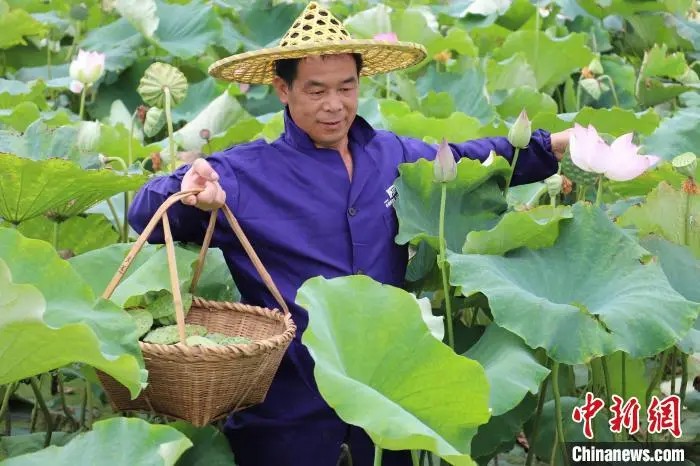 A farmer picks lotus seedpods at a lotus pond in Guangchang county, east China's Jiangxi Province. (Photo/Xiong Jinyang)
A farmer picks lotus seedpods at a lotus pond in Guangchang county, east China's Jiangxi Province. (Photo/Xiong Jinyang)
The county produces 9,000 tonnes of white lotus seeds each year, creating an output value of more than 800 million yuan (around $110 million).
Currently, Guangchang county boasts 24 enterprises dedicated to the development and processing of white lotus products.
 Livestreamers promote lotus products during a live-streaming session. (Photo/Xie Xin)
Livestreamers promote lotus products during a live-streaming session. (Photo/Xie Xin)
The range of white lotus products encompasses nearly 150 items, including dried white lotus seeds, processed lotus seeds, lotus root powder, medicinal products, lotus flowers, lotus seedlings, white lotus seed processing machinery, lotus by-products, and creative cultural products.
In addition to the direct benefits of the lotus industry, Guangchang in recent years has been developing tourism centered around lotus flowers. Various tourist-friendly activities such as flower appreciation, fruit tasting, entertainment, and dining can be found in the county.
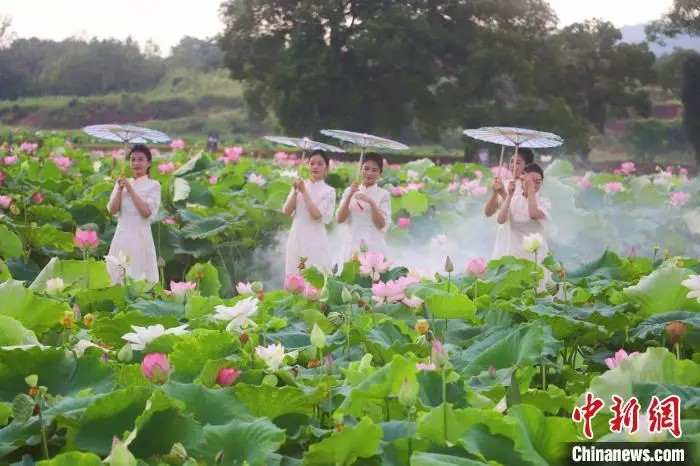 A performance is staged at a lotus pond in Guangchang county, east China's Jiangxi Province. (Photo/Xiong Jinyang)
A performance is staged at a lotus pond in Guangchang county, east China's Jiangxi Province. (Photo/Xiong Jinyang)
From January to May 2024, Guangchang welcomed 3.35 million tourist visits, generating approximately 2.1 billion yuan (about $289 million) in comprehensive tourism revenue.
The first training camp of the Center of Innovation and Maritime Excellence, supported by Chinese companies, was opened Thursday in Djibouti City, the capital o...